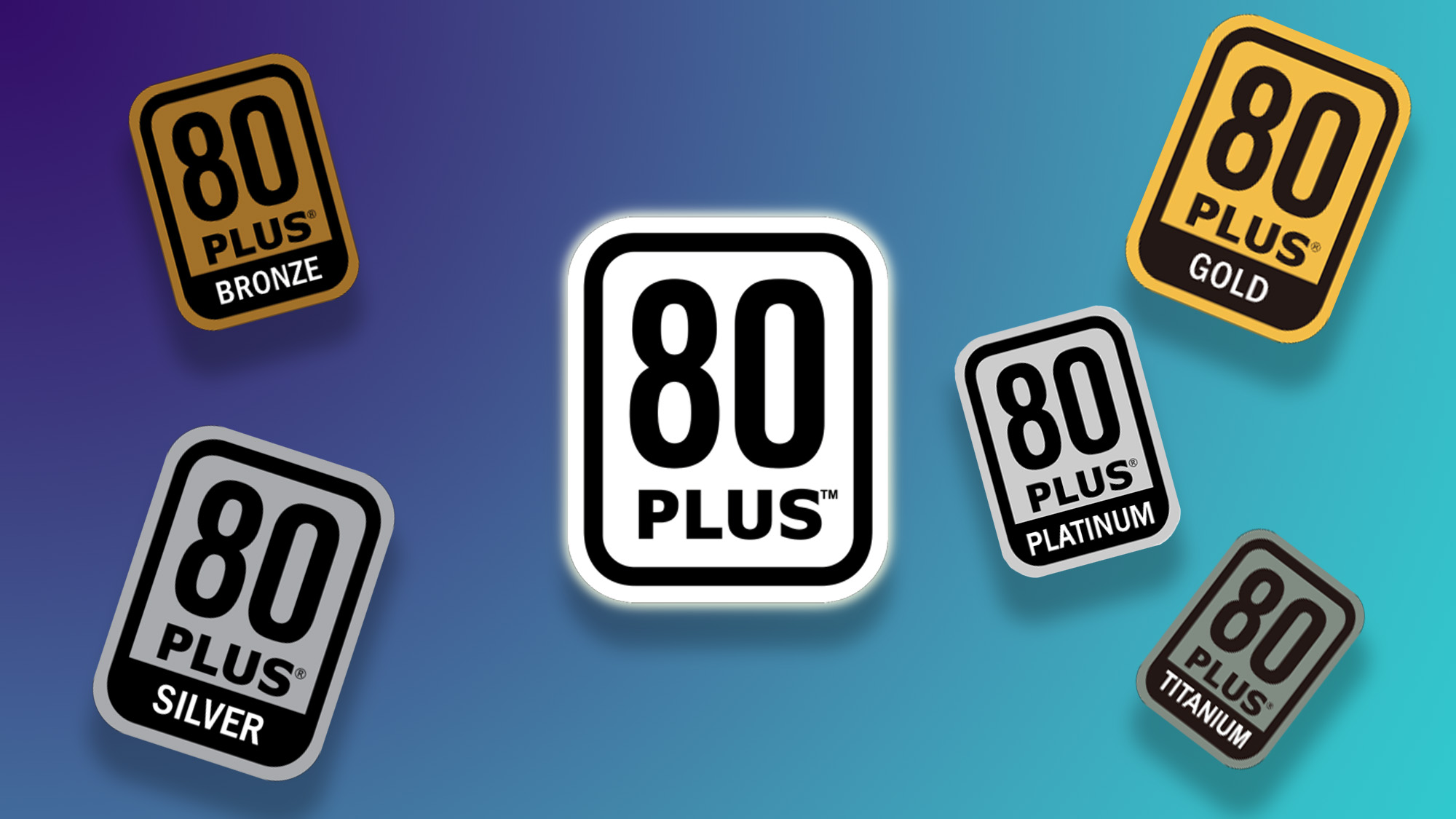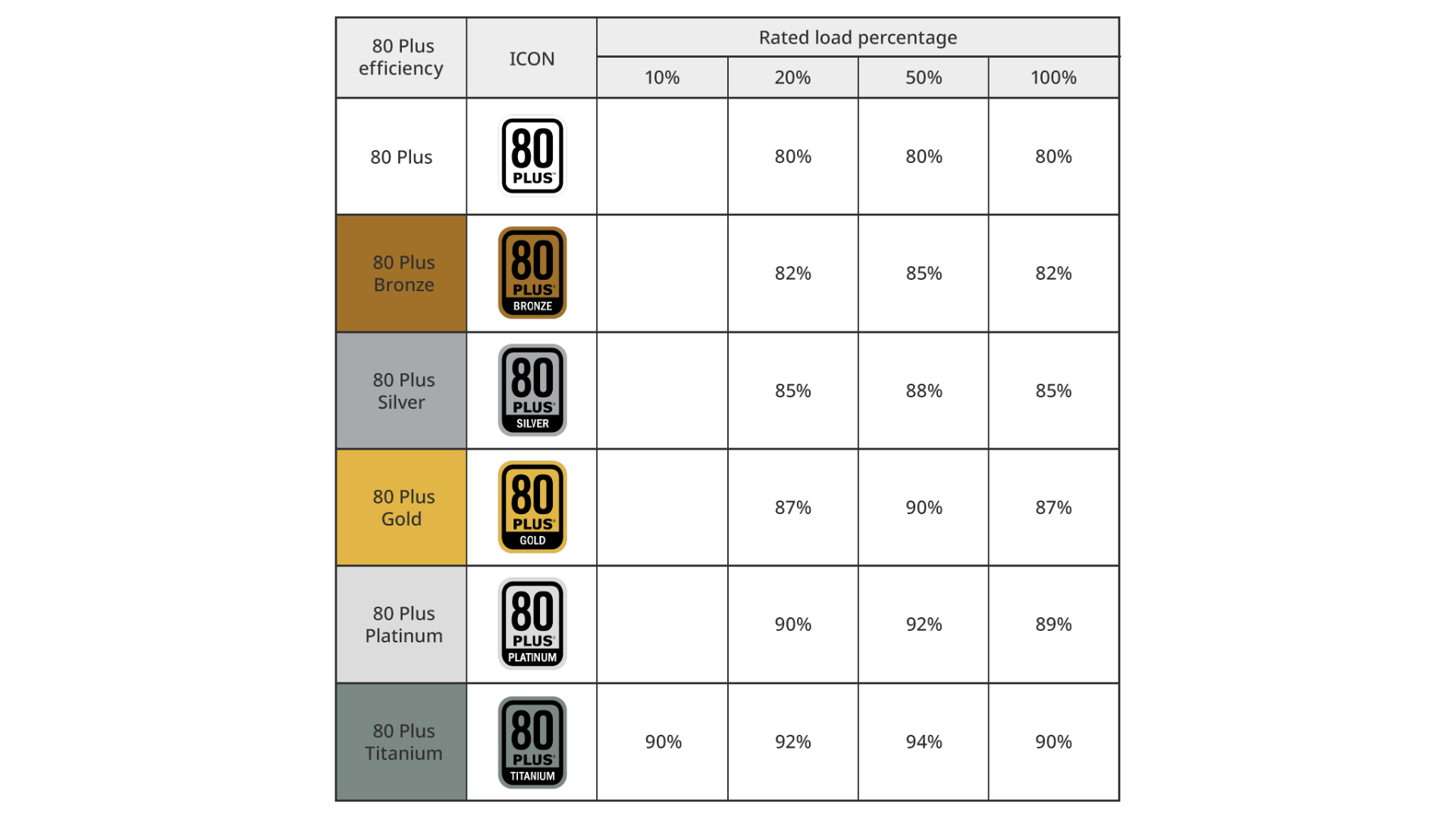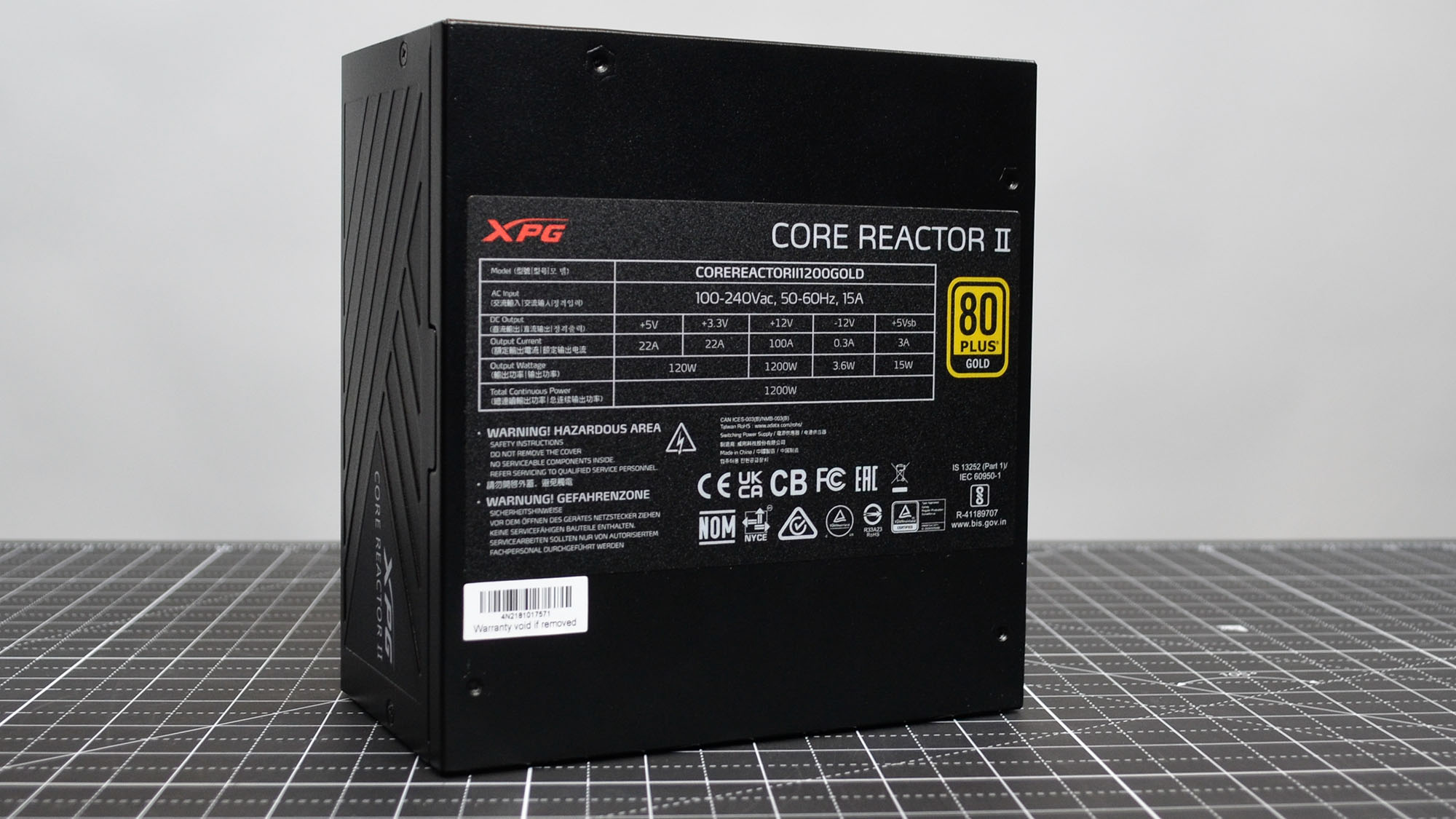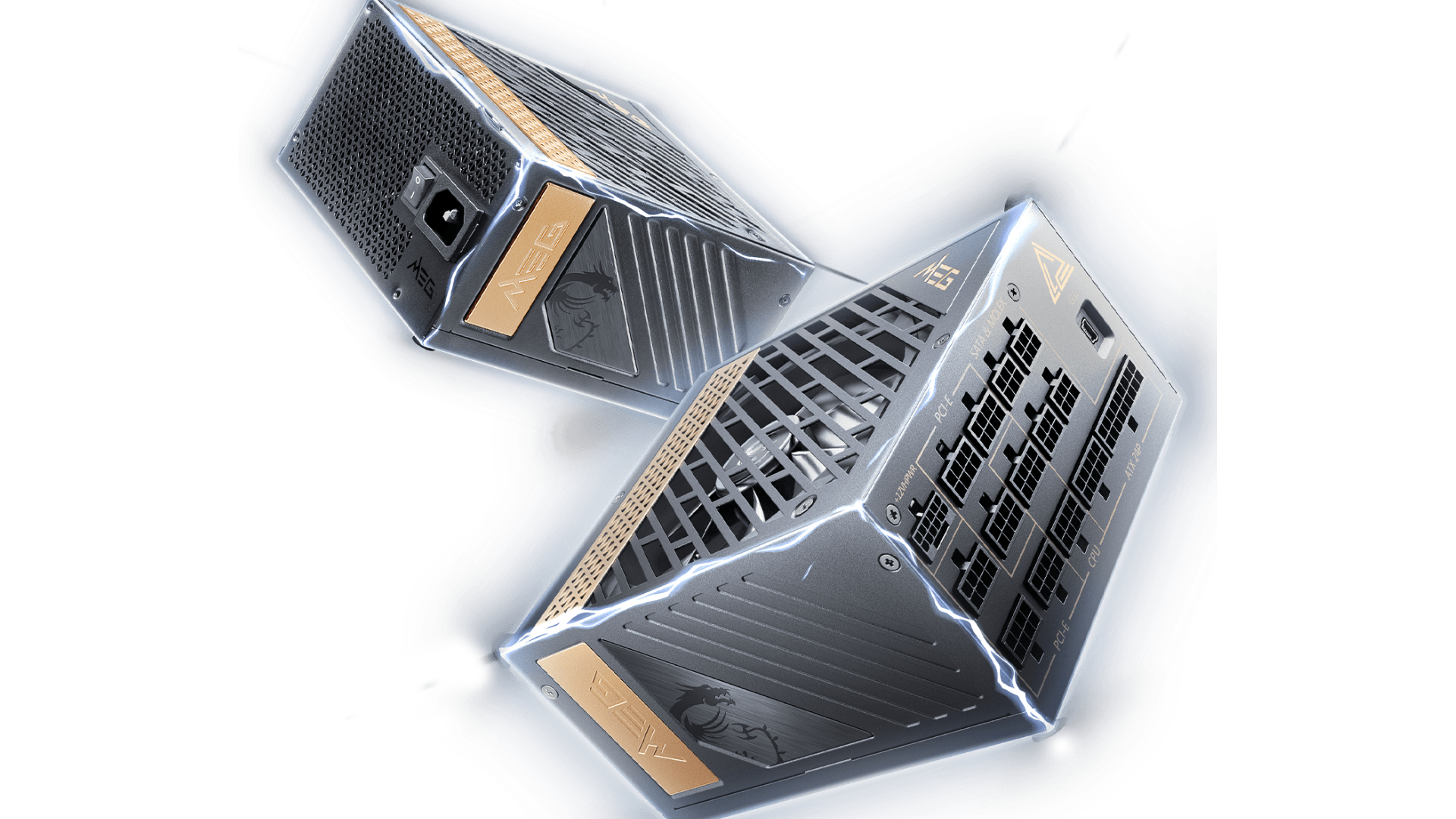Power supply ratings explained: the 80 Plus certification system in detail
Which rating should you look for?

Whether you're buying a power supply unit for the first time or needing to upgrade to a higher-wattage brick, you're going to want to pay close attention to the power supply ratings system.
Every PSU that you can buy right now will be 80 Plus certified, but not all are created equal, and the classifications are more of a spectrum than you may be aware of. It's a voluntary certification program and not a legal requirement for the hardware, but it can give peace of mind as to the quality of a product, as it means it has been independently verified.
Some of the best PSUs on the market will have the highest 80 Plus certification, but there are many different qualifiers that a power brick has to meet before it can be awarded the right classification. We should stress that the most expensive options on the market will not necessarily be the best in terms of their rating, especially when factoring in different wattages available and which brands are making them in the first place.
I'm here to explain this power supply rating system in detail, including the full range of certifications, what they mean, and what to look out for. This includes the outline of non-modular, semi-modular, and fully-modular options, with considerations to the wattages as well. A good quality PSU can live upwards of 10 years (or more), so it's important to make the right choice for the long haul.

What is the power supply rating system?
Many (but not all) power supplies are rated on the 80 Plus certification system, and there are six different labels ascribed to a PSU.
These are 80 Plus, 80 Plus Bronze, 80 Plus Gold, 80 Plus Platinum, and 80 Plus Titanium. The scaling of precious metals into strength makes sense, and they are even color-coded accordingly at a glance, which can be helpful.
For over two decades, the 80 Plus rating system has been a measurement of a power supply's energy efficiency. A power supply needs to run at 80% at an absolute minimum, hence the naming convention. They are tested under 10% (Platinum only), 20%, 50%, and 100% loads with their efficiency ratings ascribed numerically.
At first, there were only three ratings available, Bronze, Silver, and Gold, but these were expanded to Platinum in 2009 and Titanium in 2012 as PSUs became larger and more power-efficient with advancements in technology.
The ultimate goal is to come as close to 100% efficiency as possible, and we aren't quite there yet. Traditionally speaking, 50% loads tend to be the primary focus in testing, which dictates a steady middle ground between the 20% minimum load and going all out at 100% (which are rarer by comparison).
Interestingly, 80 Plus Ruby was freshly unveiled in March 2025 as the latest certification for power supply units, exclusively for data center servers (and not consumer computers). It's the first big development to the system in over 13 years, and it shows that we could see future power supplies come ever closer to reaching the coveted 100% efficiency rating. 80 Plus Ruby is said to achieve 96.5% efficiency, so we're only within 3.6% of perfection.

How do 80 Plus ratings affect PSU prices?
Generally speaking, a more expensive PSU will feature a higher 80 Plus certification, but this isn't always guaranteed. That's because some higher wattage power bricks (or varying form factors) can carry extra features beyond their power effiencies. So it's important to know the rough price ranges you should be expecting to pay, the average wattages commonly associated with the PSUs, and what is a top-tier model.
First off, we can touch upon the PSUs that are not 80 Plus certified. The certification system is a voluntary one showcasing efficiency and not a legal requirement, so many of the absolute cheapest PSUs on the market do not have this certification at all. I would only recommend power bricks that have been tested and certified.
The majority of entry-level power supplies from trusted manufacturers will be 80 Plus Bronze, and this is common with affordable options from Corsair, MSI, and GameMax. While not exclusive, we typically see wattages of 500 to 750 here, with prices between $50 and $80.
80 Plus Gold is the next step up and more common from upper midrange to higher-end power supply models from most trusted manufacturers. You're paying more for the power efficiency by default, anywhere from $70 to upwards of $150, depending on the total wattage and form factor available.
The minimum that you're realistically going to spend on an 80 Plus Platinum PSU will be around the $100 mark. However, it's common to spend double (even triple) this amount depending on the manufacturer. Some budget offerings, such as the LC-POWER 850W Fully Modular, are 80 Plus Platinum for around $100, whereas more established models, such as the Corsair SF850 Fully Modular, are available closer to $200 depending on the year it was manufactured (whether it's ATX 3.1 compliant, etc.)
Massive power supplies also tend to be 80 Plus Platinum-rated, which means they're far more power-efficient under moderate loads. This is evident by the Corsair HX1500i Fully Modular and the NZXT C1500 Platinum, though you'll be paying more than $300 for each of these models despite cheaper (similarly powerful) options being available. It ends up being a balancing act of price-to-performance, which you'll (arguably) get more with an 80 Plus Gold PSU than its Platinum equivalent.
The pricing against the power efficiency increases once more with power supplies that are rated 80 Plus Titanium. Unsurprisingly, you're paying a premium to get the highest possible rating of efficiency (and longevity), especially from a trusted manufacturer. For example, the Be Quiet Dark Power 13 850W is available for $279, with far larger bricks eclipsing this rate.
We can see this with the Corsair AX1600i for $610 and the MSI MEG Ai1600T for $699.99; while not mutually exclusive, it's far more common to see high-end, high-performance premium bricks carry this rating.

How important is 80 Plus certification for PSUs?
The 80 Plus rating system is entirely voluntary and not required for any company to release a power supply. Some of the best power supply brands will adhere to its independent testing to achieve verification on the easy-to-understand ranking system in good faith as it's a good shorthand for a consumer to know it's a quality product.
It's common (if not always ensured) that just about any PSUs made by Be Quiet, Corsair, Cooler Master, Enermax, Fractal Design, Gigabyte, Lian-Li, MSI, NZXT, Seasonic, SilverStone, among others, will adhere to it.
The latest published FAQ PDF document for 80 Plus testing from July 2024 goes into more detail about how power supplies are benched and the decisions made that culminate in a final rating.
This includes details on the measuring of the input voltage with C19 and C14 open connectors, as well as the frequencies at which the units are tested. This includes outlines for non-redundant tests at 50V and internal redundant tests at 60Hz with varying voltages accordingly, depending on whether it's in the EU (230V) or North America (230V and 277/480V).
We also know the power source used for PSU testing, it's an Amtek MX45-3PI-480-HV 3-phase 45 kVA solid stage voltage source used to test at 115V and 230V. A Chroma 61845 3-phase 45 kVA voltage source is used in testing 277V, 480V, and 380VDC. These are run through a power analyzer, the Yokogawa WT3000E, with varying settings and samples for input and output parameters.
CLEAResult also explained that it starts its testing protocols with a 0% load and then begins recording each operating load for 15 minutes. The process is repeated at 10%, 20%, 50%, and 100%. Should a PSU fail for any reason, the test is terminated, and a second unit is benched from the original point of failure. If it passes then the data is used for the report, but if it fails, the PSU line will not receive certification.
Based on the thorough nature of the testing, combined with the transparency of the process from CLEAResult, it's apparent that only PSUs of a certain quality will meet the standards to become 80 Plus certified. We recommend thoroughly reading through the 19-page document for full clarification.
Given everything, we're confident in recommending a minimum of an 80 Plus Bronze PSU, however, an 80 Plus Gold or 80 Plus Platinum brick will offer the highest level of efficiency for the money. 99.9% of computer users will not need an 80 Plus Titanium power brick, but it couldn't hurt if you're eyeing up a high-performance model.
Find out more about what your PC components do...
Get daily insight, inspiration and deals in your inbox
Sign up for breaking news, reviews, opinion, top tech deals, and more.

Formerly TechRadar Gaming's Hardware Editor, Aleksha McLoughlin is now a freelance writer and editor specializing in computing tech, video games, and E-commerce. As well as her many contributions to this site, you'll also find her work available on sister sites such as PC Gamer, GamesRadar, and Android Central. Additionally, more of her bylines can be found on Trusted Reviews, Dexerto, Expert Reviews, Techopedia, PC Guide, VideoGamer, and more.
You must confirm your public display name before commenting
Please logout and then login again, you will then be prompted to enter your display name.